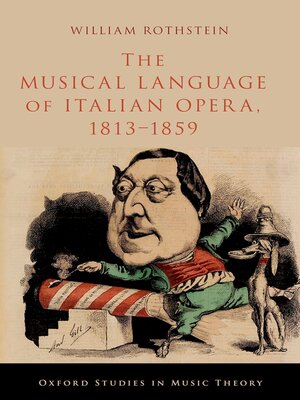The Musical Language of Italian Opera, 1813-1859
ebook ∣ Oxford Studies in Music Theory
By William Rothstein

Sign up to save your library
With an OverDrive account, you can save your favorite libraries for at-a-glance information about availability. Find out more about OverDrive accounts.
Find this title in Libby, the library reading app by OverDrive.



Search for a digital library with this title
Title found at these libraries:
| Library Name | Distance |
|---|---|
| Loading... |
Though studying opera often requires attention to aesthetics, libretti, staging, singers, compositional history, and performance history, the music itself is central. This book examines operatic music by five Italian composers—Rossini, Bellini, Mercadante, Donizetti, and Verdi—and one non-Italian, Meyerbeer, during the period from Rossini's first international successes to Italian unification. Detailed analyses of form, rhythm, melody, and harmony reveal concepts of musical structure different from those usually discussed by music theorists, calling into question the notion of a common practice. Taking an eclectic analytical approach, author William Rothstein uses ideas originating in several centuries, from the sixteenth to the twenty-first, to argue that operatic music can be heard not only as passionate vocality but also in terms of musical forms, pitch structures, and rhythmic patterns—that is, as carefully crafted music worth theoretical attention. Although no single theory accounts for everything, Rothstein's analysis shows how certain recurring principles define a distinctively Italian practice, one that left its mark on the German repertoire more familiar to music theorists.







